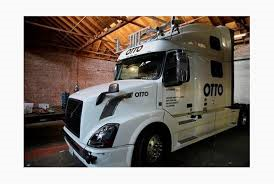
Breaking News
 Pam Bondi says that if we prosecute everybody in the Epstein Files, the whole system will collapse
Pam Bondi says that if we prosecute everybody in the Epstein Files, the whole system will collapse
 Dr Pollan at Harvard has cured schizophrenia using keto diet
Dr Pollan at Harvard has cured schizophrenia using keto diet
 We are winning. Big Pharma is finding it too difficult to get new vaccines approved under Trump
We are winning. Big Pharma is finding it too difficult to get new vaccines approved under Trump
 Abortion drugs discovered in Bill Gates' vaccines
Abortion drugs discovered in Bill Gates' vaccines
Top Tech News
 Drone-launching underwater drone hitches a ride on ship and sub hulls
Drone-launching underwater drone hitches a ride on ship and sub hulls
 Humanoid Robots Get "Brains" As Dual-Use Fears Mount
Humanoid Robots Get "Brains" As Dual-Use Fears Mount
 SpaceX Authorized to Increase High Speed Internet Download Speeds 5X Through 2026
SpaceX Authorized to Increase High Speed Internet Download Speeds 5X Through 2026
 Space AI is the Key to the Technological Singularity
Space AI is the Key to the Technological Singularity
 Velocitor X-1 eVTOL could be beating the traffic in just a year
Velocitor X-1 eVTOL could be beating the traffic in just a year
 Starlink smasher? China claims world's best high-powered microwave weapon
Starlink smasher? China claims world's best high-powered microwave weapon
 Wood scraps turn 'useless' desert sand into concrete
Wood scraps turn 'useless' desert sand into concrete
 Let's Do a Detailed Review of Zorin -- Is This Good for Ex-Windows Users?
Let's Do a Detailed Review of Zorin -- Is This Good for Ex-Windows Users?
 The World's First Sodium-Ion Battery EV Is A Winter Range Monster
The World's First Sodium-Ion Battery EV Is A Winter Range Monster
 China's CATL 5C Battery Breakthrough will Make Most Combustion Engine Vehicles OBSOLETE
China's CATL 5C Battery Breakthrough will Make Most Combustion Engine Vehicles OBSOLETE
Startup wants to put self-driving big rigs on US highways

To many, that might seem a frightening idea, even at a time when a few dozen of Google's driverless cars are cruising city streets in California, Texas, Washington and Arizona.
But Anthony Levandowski, a robot-loving engineer who helped steer Google's self-driving technology, is convinced autonomous big rigs will be the next big thing on the road to a safer transportation system.
Levandowski left Google earlier this year to pursue his vision at Otto, a San Francisco startup the he co-founded with two other former Google employees, Lior Ron and Don Burnette, and another robotics expert, Claire Delaunay.
Otto is aiming to equip trucks with software, sensors, lasers and cameras so they eventually will be able to navigate the more than 220,000 miles of U.S. highways on their own, while a human driver naps in the back of the cab or handles other tasks.
For now, the robot truckers would only take control on the highways, leaving humans to handle the tougher task of wending through city streets. The idea is similar to the automated pilots that fly jets at high altitudes while leaving the takeoffs and landings to humans.
"Our goal is to make trucks drive as humanly as possible, but with the reliability of machines," Levandowski says.



